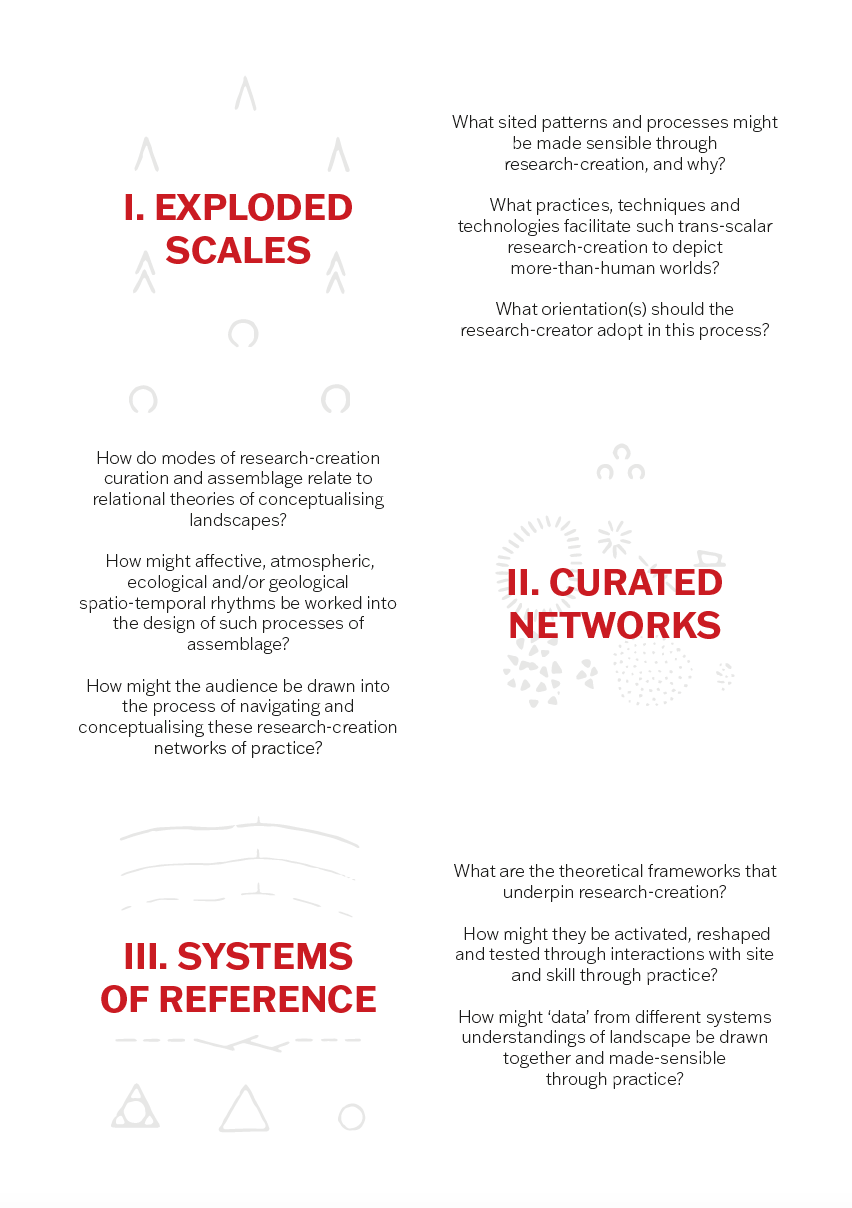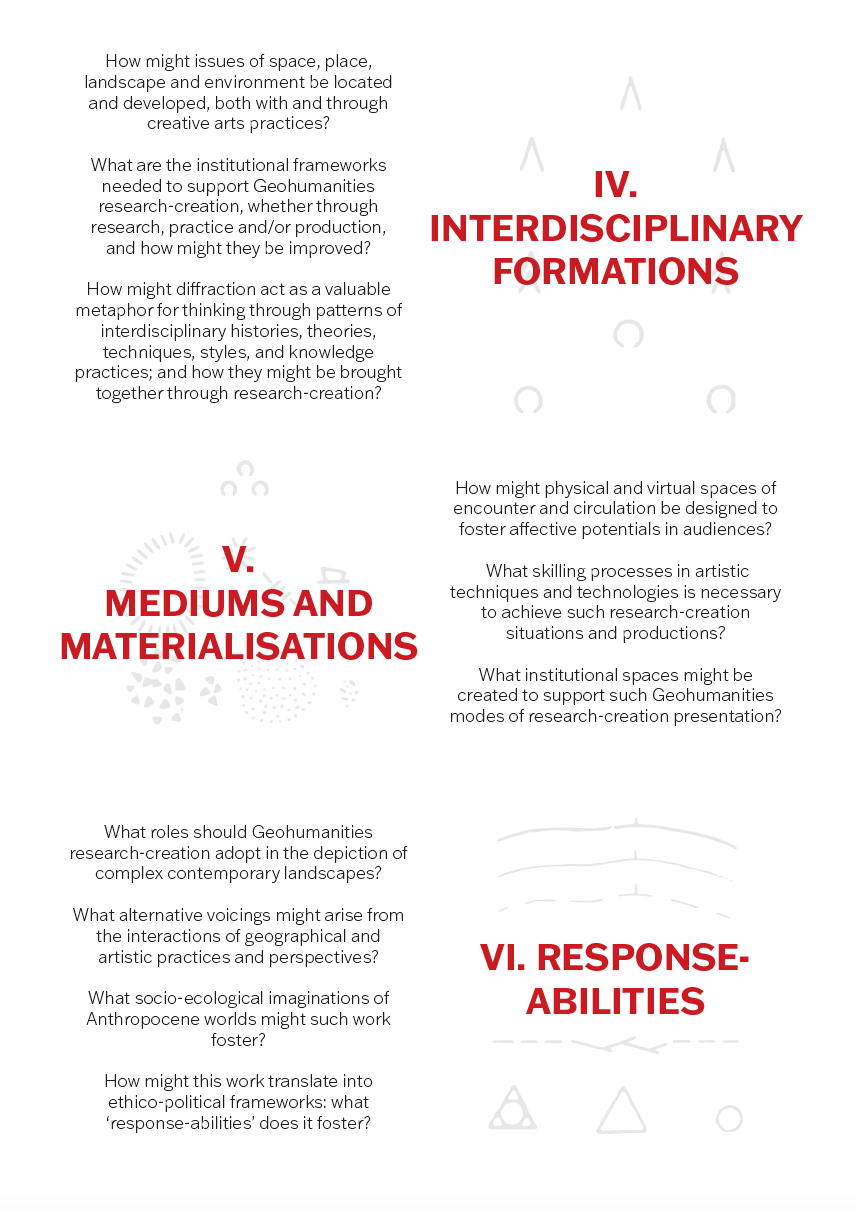Exploded scales, island imaginaries: The new landscape in art and geography
2014–2021
PhD thesis completed at the University of Glasgow in 2021. Download here.
Abstract
This thesis is concerned with how geographical research and artistic practice can be twined to story Anthropocene landscapes and environments. It follows research-creation through two sites – archive and island – to address the framing of more-than-human worlds through trans-scalar practices. First, it traces a mid-20th century Geohumanities ‘pre-history’ through the archive of Hungarian artist and educator György Kepes, mapping the emergence of two discourses of socioecological concern and artistic practice, Landscape and Environment. Second, it diffracts insights from this period through contemporary research-creation on the former military Finnish Archipelago island of Örö to develop Geohumanities practices based on the interstices of site, skill and theory. In so doing, it addresses key contemporary debates over the forms and function of Geohumanities research and practice through the documentation of detailed and reflexive research-creation.
The first half of this thesis offers a genealogy of the practices of interdisciplinary artist and educator György Kepes between the early 1950s and the mid 1970s. Placed as operating in the ‘Great Acceleration’ of the Anthropocene, Kepes’ attempts to foster interdisciplinary creative practices for socio-ecological change are identified as a valuable, if largely overlooked, ‘pre-history’ to contemporary debates in the Geohumanities. Drawing methodologically from Andrew Patrizio’s ‘ecological eye’ approach to art history and Michel Foucault’s genealogy, this thesis develops modes of practicing the Kepes archive which seek to channel emergent geographical themes in his work. This process identifies two ‘keyword’ discourses, of Landscape and Environment, which are shown to be inflected by prevailing currents in artistic practices, systems theories, institutional priorities, imaging technologies, socio-ecological change, and environmental consciousness in East Coast America between the 1950s and 1970s. These inflections provide the basis for the genealogical identification of six variations on their theme: Landscape-as-Exploded-Scale; Landscape-as-Curated-Network; Environment-as-System; Environment-as-Interdisciplinarity; Environment-as-Dematerialisation; Environment-as-Issue. Accordingly, Landscape and Environment are both objects of concern and modes of practice in Kepes’ work: they form spatio-temporal expressions which blur page, place and exhibition space: means of fostering Kepes’ techno-pastoral utopian vision.
The second half of the thesis diffracts insights from the Kepes archive through fieldwork on the Finnish Archipelago island of Örö, to develop research-creation methodologies emerging through the intersections of site, skill and theory. The eight Örö ‘modes of practice’ provide an example of Geohumanities research-creation where the development of artistic skill is understood as a mode of attunement to the characteristics of a site, where contemporary theory can be activated and tested through the development of new practice methodologies. The outcome is a series of methodologies which draw interdisciplinary insights from film making, sound art, photography, installation art and experimental publishing practices to develop means of storying a patterned, transitionary island landscape. These are not methodologies which have been ‘shipped in’ from elsewhere: instead they are formed through slow, patient attentiveness to the island’s human and non-human lifeworlds, putting experimental artistic practices ‘to work’ as valuable modes of landscape enquiry. Throughout, the notion of the site-specific-non-specific is developed: a researchcreation orientation in which artistic production might attend to specific material and atmospheric histories and geographies of a site, whilst at the same time fostering modes of presentation which are charged with relational affective potentials. As a result, this study provides an example of sited Geohumanities methodological development for storying ‘blasted’ and transitional Anthropocene landscapes. This process takes place through a diffraction of site, skill and theory, resulting in modes of research-creation which are at once forms of documentary and abstraction.
Work across the archive and island results in six thematic sets of questions for research-creation practitioners, supervisors, collaborators and institutions, intended to support the design and practice of future Geohumanities research-creation. Each of the six themes draw on specific issues and practices documented throughout the thesis, and act as forward-looking summaries to prompt new research-creation orientations. The questions act as a check-list or tool-kit for Geohumanities practitioners undertaking research and practice; a reflexive pause where conceptualisations of site, skill and theory can be explicitly considered and critiqued. In so doing, they also offer the potential to act as points of dialogue for theories, techniques and technologies used by practitioners across different disciplines, forming prompts for the development of new research-creation collaborations. Broadly, then, the thesis forms an invocation for future research-creation across the new landscape in art and geography.


